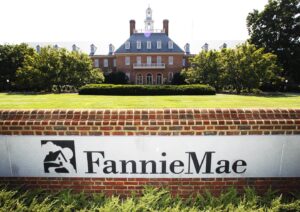At the Market Institute, we are building a coalition of organizations, policy analysts, and thought leaders that oppose government programs, regulations, and fees that make it harder to buy a home, more risky to buy a home, and make the housing market less competitive. As one of our first actions, we put together a letter from like-minded organizations to send to Congress that oppose the recent proposal from Fannie Mae to takeover title insurance.
Letter to Congress

Dear Members of Congress:
We write today to urge you to address a proposed pilot program that will needlessly centralize the home financing market and add risk to homebuyers and taxpayers. The global financial collapse of 2008 was only 15 years ago, but the public-policy nightmare that created it is still around. The mortgage-lending giant Fannie Mae, its outsized and ever-expanding role in homebuying, and the excessive risks it took almost brought down the world financial markets.
However, now Fannie Mae is seeking more authority and the chance to shoulder additional risk in an area in which it has no expertise or authority. Fannie Mae wants to launch a pilot program that would allow it to take over title insurance, a primary market product, from the thousands of small businesses that now offer it. That would not be good for anyone involved, especially the financial markets.
Title insurance protects homebuyers against expensive attorney fees and loss of property if surprise defects in the title are discovered later, such as tax liens, fraud, or title-document forgery. It is understandable that the U.S. government wants to lower the costs related to buying a house for low- and moderate-income families. But there’s a problem with the reported pilot and its approach.
First, the government is intervening where a problem doesn’t exist. After 2008, there is no confusion that Fannie Mae is at least an extension of the government. Second, under the current proposal, very few of the low-income families that are the intended beneficiaries would qualify for it. Fannie Mae’s proposal would reportedly target the pilot at homeowners who can afford a 20 percent down payment. That would exclude almost all low-income families, making this an obvious market takeover at its core.
Letting capitalism work is the most effective way to lower prices for homebuyers. In fact, the cost of title insurance coverage has decreased seven percent since 2004. That means that for each dollar of premium consumers purchase, they get an extra $26 in coverage today, compared with 2004. That is how free markets work.
The proposed pilot program would begin the slippery slope of federalizing a private market business, placing more responsibility on an enterprise that is already under government conservatorship because it mishandled risk in the past. The pilot program is unneeded, unworkable, and unwise. Fannie Mae is not sound enough to operate independently. Giving it additional risk-bearing authority in the housing market is ill advised.
Congressional policymakers should act and stop this pilot program before it starts.
Thank you for your time.
Signatories
Charles Sauer
Market Institute
Ryan Ellis
Center for a Free Economy
John Tamny
FreedomWorks
Pete Sepp
National Taxpayers Union
Jim Martin
60 Plus Association
Saul Anuzis
American Association of Senior Citizens
Phil Kerpen
American Commitment
Derrick Hollie
Reaching America
George Landrith
Frontiers of Freedom
Richard Manning
Americans for Limited Government
Ashley Baker
The Committee for Justice
Marion H. Lopez
Hispanic Leadership Fund
Karen Kerrigan
Small Business and Entrepreneurship Council
Jeff Cargerman
US Policy
Seton Motely
Less Government
Joshua Delano
Southeast Texans for Liberty
Dick Patten
American Business Defense Council
Autry Pruitt
New Journey PAC
Peter Thomas
Conservative Caucus
Larry Ward
Constitutional Rights PAC
Angie Wong
Legacy PAC
Stan Fitzgerald
Veterans for America First
Ralph Benko
The Capitalist League
Jim Babka
Downsize DC
Robert Kenyon
Republican Liberty Caucus of Virginia
Carla Howell
Center for Small Government
Elizabeth Hicks
Consumer Choice Center
Jeffrey Mazzella
Center for Individual Freedom
Brian Garst
Center for Freedom and Prosperity



